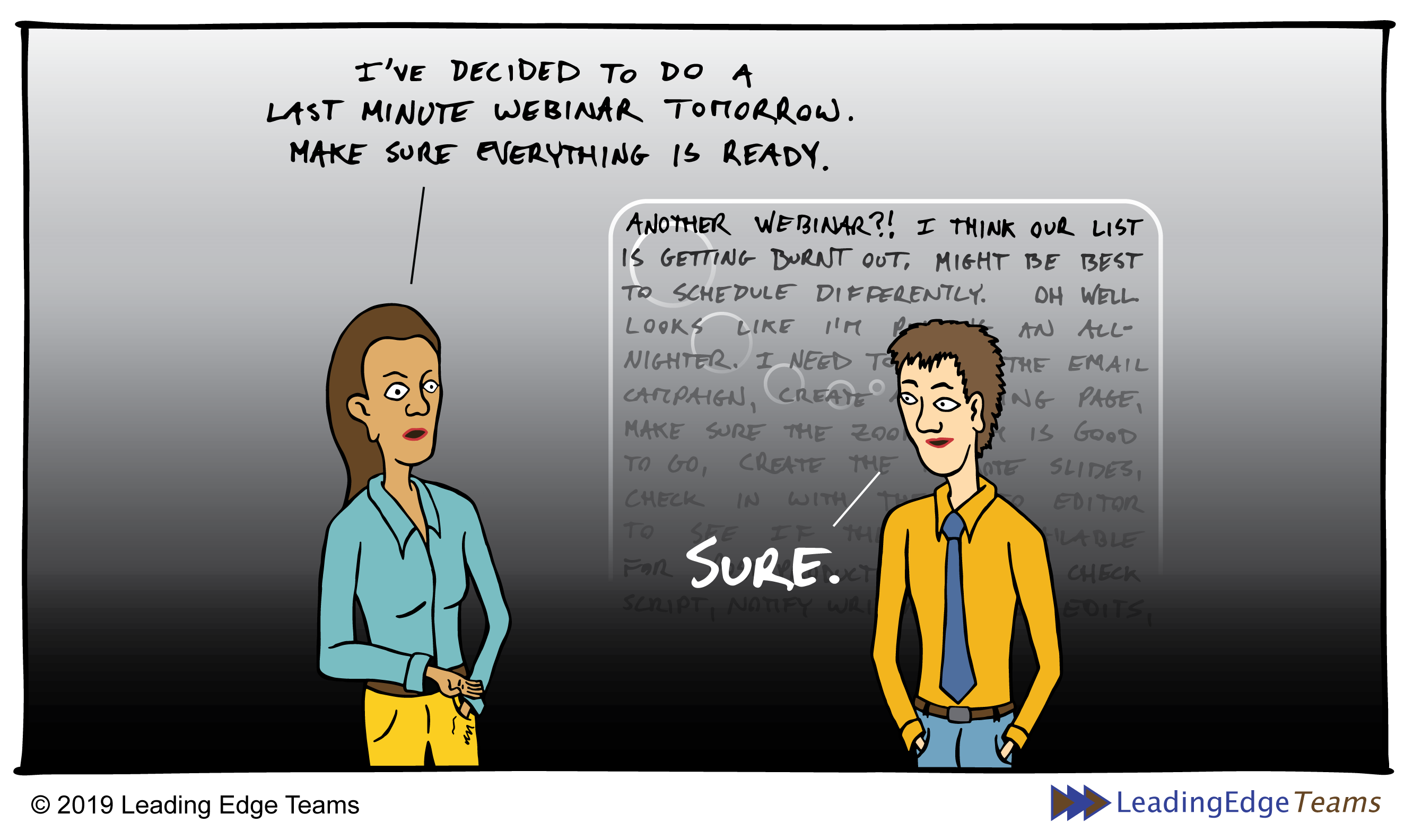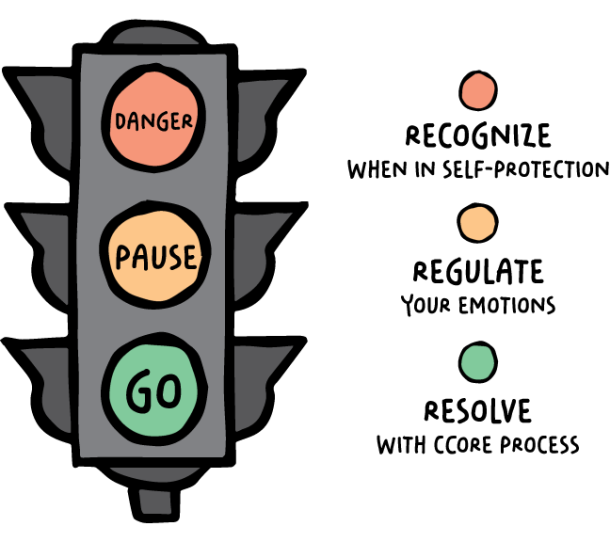Words Matter!! This might, or might not, be uncharted territory for you, but let's talk about leadership dialogue. It’s a powerful force. We are not robots, we are human beings, and there are times when we don’t put our critical thinking into action, and forget that our words have a huge impact on achieving company outcomes.
On any given day, stress or nerves can rise up and cause you to feel less confident, grounded or safe to say what you think, no matter who you are, or your role in the company. At such times, your natural calm breaks down, causing overly direct, or confrontative words and behaviors… and from there things can escalate and veer off course!

I can almost read your mind… because you are remembering a time!
I know, and you know, high performance leaders make it a habit to speak differently, not getting swept up in reactivity, to get optimal results. That's because, to begin with, they think and act differently. They show up ready—with a strong focus and deliberate intention—to plan and create, inspire and lead. And the way they speak, and the words they choose—matter! Their words motivate their team—and those words influence how ‘A' Players see themselves and their role—and how they develop into ‘A+' Leaders.
Tentative Talk
There's a huge difference in how effective communication is facilitated. A concern involving another person’s work area or performance, for example, needs to be communicated tentatively. Tentatively just means: It's my idea, but I’m not committed, or this is what I'm thinking right now. It implies that my position is not fixed and I'm open for discussion. It avoids blame and keeps the dialogue solution focused. This is enormous, and it helps negotiations move toward agreement fast. The other person is way less likely to resist or put up defenses when your words indicate the concern or issue is open for discussion, and stated like this, “Kate, I reviewed your marketing brief, and I’m thinking that perhaps we should begin the promotion with a webinar instead of an email campaign, as I’ve been noticing our webinar attendance keeps increasing, even though our email opens have not. What do you think?”
But a person will put up defenses and go into self-protection behaviors if, instead, the words used are too direct, demanding, or authoritative. Words that imply, I have already decided, I’m right, you’re wrong, and there’s no room for discussion, slams the negotiation door shut.
Words from a demanding place of authority sound like this: “Hey Kate, I’ve decided we are doing a webinar and I am cancelling your email campaign.” Yep, slammed shut. These words stop all discussion and consideration, without giving the other person a chance to be heard, ask questions or express an opinion—and in turn, the person shuts down and often feels disrespected. This causes them to react with any number of self-protective behaviors: blame, frustration, resistance, silence… or more.
![]()
Perception Checking
Next, I advise that you make “perception checking” a habit, because verbal messages sent are not always the messages received. The more you paraphrase back, what somebody is saying to you, more clarity and understanding is generated between you both. It also shows you are interested, you care. “Did I get this right—did I hear this right?” “Wait, let me just make sure I'm understanding what you're saying…” This has huge benefits for both of you.
“The most important thing in communication is hearing what isn’t said.” – Peter Drucker
Dialogue is hard, because we are all unique, but you need to take time with it. You need to be aware that you don't always “get” what people are trying to tell you. It's true for all of us. So to help you hear what isn’t said, or to hear it correctly, perception checking prevents going down a rabbit hole where you are unable to retrieve an inaccurate or inappropriate response. To avoid wrong assumptions, you can say things “Hey, here's what I think you said…” or “This is what I think you meant…” or “You said this, but did you mean this… (other thing)? Great, let's talk about it.” This openly and clearly states the issue, where natural conversation can follow about the impact and solution.
Get Curious
Psychologically safe, productive negotiation starts with curious questions—open ended questions. Make these a habit, too. You can simply ask, “What do you think?” It's open-ended, and it says “I care about what you think, so I’m asking.” You might even follow with, ”I wouldn't ask if I didn't care about what you think about this.” It immediately communicates respect, and acknowledges the other person's value, and also that you welcome their input. Make sense?
Hope so, because all of this generates powerful collaboration and participation for each individual on your team, leading to effective agreements. Like all humans, your team members need to feel valued as they utilize their skills and contribute to company goals in meaningful ways. Sometimes the smallest change of approach and words, melts resistance, drops tension, and results in a positive response. It’s very cool to experience!
These are all super-important communication habits that not only demonstrate respect and appreciation of others, but also contribute to a company culture that is able to function in agreement and harmony. Remember, words do matter! Follow these suggestions and discover how individuals on your team respond. It may surprise you!
Remember, words matter. They are a powerful force.
This is leadership!
– Annie










